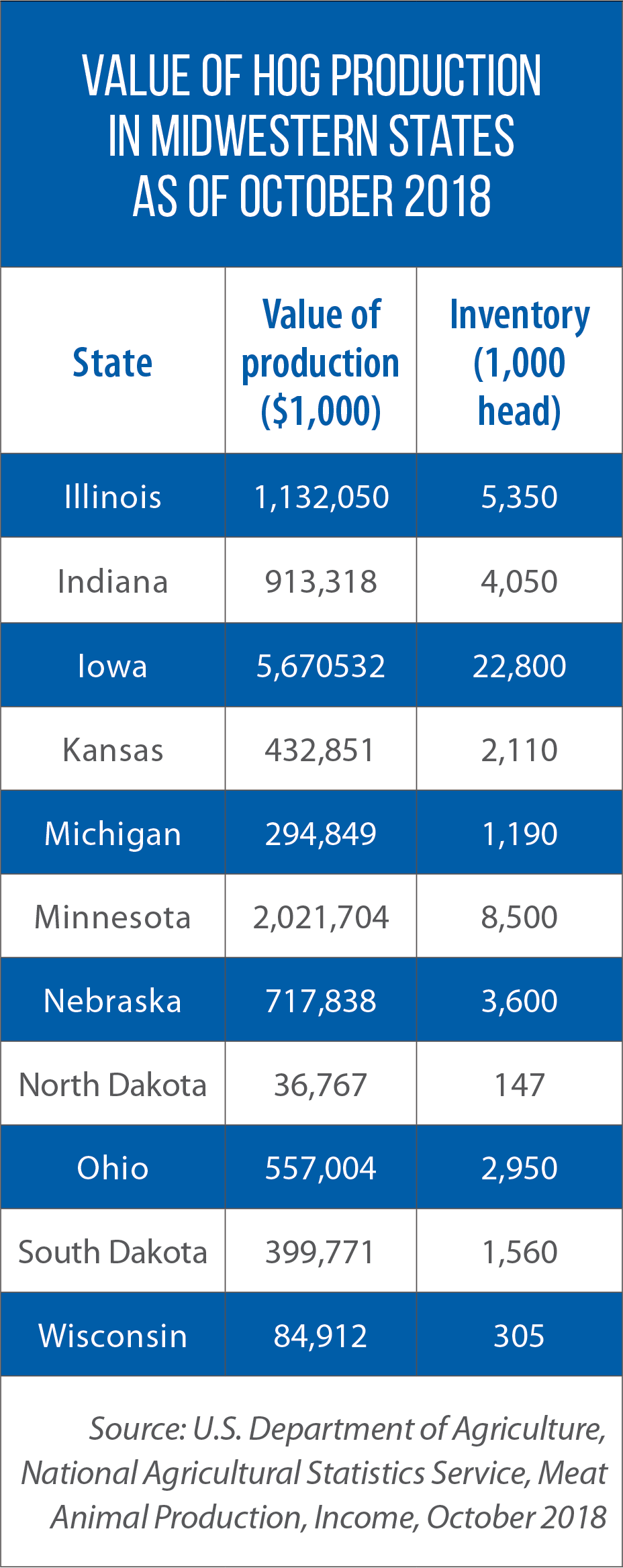Midwest states battling California law they say dictates how region’s farmers must raise livestock
The U.S. Department of Justice in December joined six Midwestern states (plus nine others) and the North American Meat Institute in the latest legal effort to block a 2018 California ballot initiative that opponents say will dictate how farmers across the region can raise their livestock.
California voters approved Proposition 12 by a 63 percent to 37 percent margin, thereby establishing production standards for pigs and veal calves within California — but also prohibiting the sale of meat produced outside the state if those animals were not raised in accordance with the requirements.
It also augments Proposition 2 of 20 08 (approved by an almost-identical percentage), which required that cage-laying hens have enough space to extend their wings in all directions.
08 (approved by an almost-identical percentage), which required that cage-laying hens have enough space to extend their wings in all directions.
Proposition 12 eliminates cages for hens, and requires farmers to provide veal calves with 43 square feet and sows with 24 feet of space by 2022.
Uncooked meat, poultry and eggs must be produced under these standards to be sold in California, a big market for agriculture producers in the Midwest. For example, the state accounts for about 20 percent of the U.S. pork market.
California’s regulations “hurt consumers by increasing prices for pork, veal and eggs and hurt farmers by increasing the cost of producing animal proteins,” says Iowa Sen. Annette Sweeney, who is also a farmer.
“This proposition does not improve animal welfare or food safety, and California voters shouldn’t be telling Iowa farmers how to raise their hogs.”
(In 2018, Iowa legislators approved HF 2408, which requires grocery stores to sell conventional eggs from hens raised in cages if they also sell “specialty” eggs, such as cage-free, to ensure consumers and food programs had access to economical eggs.)
In an amicus brief, Kansas Attorney General Derek Schmidt said Proposition 12 would establish a national animal husbandry policy via rules allowing California officials to conduct on-site inspections of farming operations in other states and impose record-keeping requirements.
“California’s attempt to regulate animal agriculture outside its borders is an unconstitutional barrier on interstate commerce and will be devastating to Kansas agriculture,” Schmidt said.
The U.S. Justice Department’s brief contends that California’s Proposition 12 disrupts U.S. Department of Agriculture food programs. “[It] would frustrate USDA policy not to buy products that are specialized or geographic in nature for the Emergency Food Assistance Program,“ the department argued.
“Any price increases in food products attributable to the new law would make such assistance programs more expensive and reduce the buying power of benefits under the Supplemental Nutrition Assistance Program.”
Ongoing legal battles
Proposition 12 has survived previous attempts to kill it in court.
In November 2019, a U.S. District Court in California denied the North American Meat Institute’s request for a preliminary injunction, finding that the law did not have a discriminatory purpose. A three-judge appellate panel denied an appeal, saying that Proposition 12 is not discriminatory since it applies to producers both within and outside of the state.
In late December, the court denied a request for a rehearing by the full panel of judges. The North American Meat Institute is considering an appeal.
A previous complaint against Proposition 12 — filed in December 2019 by the National Pork Producers Council and the American Farm Bureau Federation (joined by several states) — was dismissed in April 2020 by a federal judge who ruled the law did not discriminate against interstate commerce and did not directly regulate extra-territorial conduct.
Indiana, Iowa, Kansas, Nebraska, Ohio and South Dakota are among the 15 U.S. states supporting the North American Meat Institute’s current lawsuit against California’s Proposition 12.